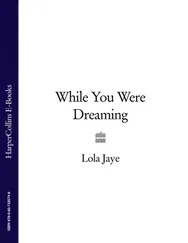Obscene, dirty, pornographic. Literally “yellow.” In Chinese class you’re most likely to learn 色情 sèqíng ( suh cheeng ) for “pornography”; it, however, is considered outdated. Nowadays anything pornographic or dirty is referred to as “yellow,” an association that may have originated in the nineteenth century, when French novels, recognizable by their yellow covers, became notorious throughout the world for their “immoral” sexual content. Thus a pornographic movie is a 黄色电影 huángsè diànyĭng (hwahng suh dyinn ing), literally “yellow movie”; a 黄带 huángdài ( hwahng die ), “yellow tape”; or 黄片 huángpiān ( hwahng pyinn ), literally “yellow piece.” A porno mag is a 黄色书刊 huángsè shūkān (hwahng suh shoo kahn), literally “yellow book,” and a dirty joke or story is a 黄段子 huáng duànzǐ ( hwahng dwun dz ), or “yellow episode.”
毛片 máopiān ( mao pyinn)
Porn video. Literally “hair tape” because you can see pubic hair.
A 片 A piàn ( A pyinn)
Hard-core porn movie. Literally “A video,” for “adult video” (though, interestingly, some Chinese mistakenly believe the A stands for American).
三级片 sānjí piàn ( sahn gee pyinn)
Soft-core porn movie. Literally “level-three video,” referring to the most restrictive level in Hong Kong ’s movie-rating system.
Drugs
吸毒 xīdú ( she do)
To take drugs. Literally “suck poison.”
毒贩子 dúfànzǐ ( do fahn dz ) or just 毒贩 dúfàn ( do fahn)
Drug dealer. “To deal drugs” is 贩毒 fàndú ( fahn do).
药物滥用 yàowù lànyòng ( yaow oo lahn yohng ) or 毒品滥用 dúpǐn lànyòng (do peen lahn yohng)
Substance abuse. Literally “drug excessive use.” The first term can mean any type of drugs, including medicine, and the second term specifically means illegal drugs, but both are frequently used. You can insert the name of a drug in front of 滥用 lànyòng to indicate abuse of that specific drug.
瘾君子 yǐnjūnzǐ ( een jwen dz)
Drug addict. Literally “addicted gentleman” or “addicted nobleperson,” because once upon a time only wealthy people could afford drugs, and opium was considered a status symbol.
抽 chōu ( choe)
Smoke (as in smoking marijuana, opium, heroin, etc.). 吸 Xī ( she ), literally “inhale,” can be used too, though it is less common than chōu.
用 yòng ( yohng)
Use. Can be inserted in front of any drug name to indicate use of that drug. For heroin or opium, however, it’s more common to say yòngthan xī or chōu(above), even though they can be smoked.
逗 dòu ( doe)
Use. Has a variety of unrelated literal meanings, including “stop” and “tease,” but is also used as slang for using drugs.
飞 fēi ( fay)
High. Literally “to fly.” Usually describes being high on marijuana but can also be used for ecstasy, heroin, and other euphoric drugs. 飞起 Fēi qǐ ( fay chee ), literally “flying upwards,” describes the feeling of getting high, and 太起了 tài qǐ le ( tie chee luh ), literally “rising too much,” describes being too high.
大 dà ( dah) or 大了 dà le ( dah luh)
An all-purpose Beijing word for “drunk,” “wasted,” “high,” “fucked up,” etc. Literally “big.” Can indicate being under the influence of any drug. You can simply say, “我大了” “ Wǒ dà le” (wuh dah luh), literally “I’m big,” to mean “I’m high” or “I’m on something” or “I’m fucked up.” Or you can be more specific by inserting various drug-related verbs (smoke, use, eat) in front; for example 我抽大了 wǒ chōu dà le (wuh choe dah luh) literally means “I smoked big” and indicates that you are high on marijuana or something else that can be smoked.
有感觉 yǒu gǎnjué ( yo gahn dreh)
Literally “have a feeling” or, rather, “I feel something” or “I’m feeling it,” indicating that you’re feeling the effects of a drug, whether you’re feeling high or a trip is setting in or things are starting to get funny or whatever.
沉了 chén le ( chen luh) or 颓了 tuí le ( tway luh)
Literally “drop” and “decline,” respectively. Both can describe dropping, crashing, or a comedown.
大麻 dàmá ( dah ma)
Marijuana, hashish.
呼 hū ( who)
Smoke (as in weed or hash). Literally “exhale.” More common in northern China. Southerners tend to say chōu (page 150).
咳 hāi ( high)
High (on marijuana). Literally, this is the onomatopoeic word for “sigh,” but it is used to mean “high” since it sounds just like the English word.
可乐 kělè ( kuh luh)
Coke. Slang for cocaine (and also the Chinese brand name for Coca-Cola). The formal words for cocaine are 古柯碱 gǔkējiǎn ( goo kuh jinn ), the scientific name more often used in Taiwan and Hong Kong, and 可卡因 kěkǎyīn ( kuh ka een ), a transliteration of the English.
吸 xī ( she)
Snort. Literally “suck in.”
道 dào ( dow)
Line (in connection with coke use). Literally “road” or “path.” “A line of coke” is 一道可乐 yī dào kělè ( ee daow kuh luh).
摇头丸 yáotóuwán ( yow toe wahn)
Ecstasy (official name). Literally “shake-head pill.” Unlike the English term, no user would ever use this full name to refer to the drug. Most people either say “E” or one of the two slang terms below.
药 yào ( yow)
Pill (slang for an ecstasy pill). Literally “medicine” or “drug.” Doing or swallowing a pill is 吃药 chī yào ( chih yow ), literally “eat medicine.” There is no direct Chinese equivalent to “rolling” to describe being on the drug, but you can instead use some of the words mentioned earlier, such as fēi or dà le.
丸仔 wánzǎi ( wahn dzigh)
Southern Chinese slang for ecstasy. Northerners usually just say “E,” though 药 yào ( yow ) is common too.
开他敏 kāitāmǐn ( kigh tah meen)
Ketamine. A transliteration of the English. As in many other countries, Special K is fast usurping ecstasy as a popular club drug in China. This is exacerbated by the fact that several factories within its borders produce ketamine for legitimate veterinary use, and thus the drug is cheaper in China.
K 粉 K fěn ( K fen ) or, more commonly, just K
Slang for ketamine. The first term literally means “K powder.”
麻黄碱 máhuángjiǎn ( mah hwahng jinn)
Ephedrine. Widely available and abused in China because ephedra, the plant from which ephedrine is derived, is native to southern China (and used in traditional Chinese medicine), and the production and export of the drug is a massive industry.
冰 bīng ( bing)
Ice (slang for crystal methamphetamine). Ice use is growing by leaps and bounds in China, for the reasons discussed in the previous entry (ephedrine is a precursor chemical for methamphetamine).
溜冰 liūbīng ( lyew bing)
Doing ice. Literally “ice skating.”
致幻剂 zhìhuànjì ( jih hwun gee)
Hallucinogen. 致幻 Zhìhuàn means “hallucination” or “hallucinate.”
有幻觉 yǒuhuànjué ( yo hwun jreh)
Hallucinate. Literally “have a hallucination.”
蘑菇 mógū ( mwuh goo)
Mushrooms. There isn’t any direct equivalent to “trip” or “tripping” in Chinese, but you can use some of the words mentioned at the beginning of the drug section, like fēi or dà le.
Читать дальше










